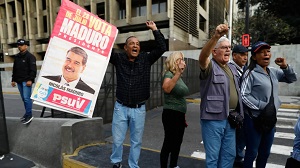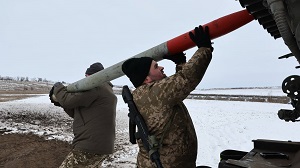It seems difficult to accurately predict how and when this brutal war in Gaza and Lebanon will end. Will the conflict expand further, or not? However, there are indicators that international pressure and calls for a ceasefire may contribute to achieving a temporary truce, which I expect, especially if mediation efforts continue. We may witness steps toward ending the war and reaching an agreement soon. However, achieving a permanent ceasefire and complete withdrawal, I believe, requires a serious commitment from the Israeli entity.
Despite the ongoing escalation in Gaza and Lebanon, the head of Mossad, David Barnea, appears to be a key player in efforts to reach an agreement to end the war. Information circulating suggests that the Israeli entity is facing difficulties in achieving its military objectives and is on the brink of economic collapse, reaching a point of no return. This is all occurring alongside ongoing American support, but the losses sustained by the entity have become unbearable due to the multiple fronts of the war, which have severely exhausted its army and reserve forces.
Today, the Israeli entity, represented by its war council, sought through recent assassination operations to create a false victory and send a message to its people and the West that it has succeeded in defeating the resistance and restoring its honor after the flood of Al-Aqsa. However, the series of assassinations and provocative actions in the region, along with media threats, have revealed the true weakness on the battlefield, particularly concerning the hostage issue.
If we analyze the current situation, we discover that the human and material losses for the entity are increasing day by day due to the variety of fronts and the failure to achieve objectives that would dismantle the symbols of resistance on the ground, despite the assassinations. This has negatively affected the entity both militarily and economically, deepening internal crises and increasing public discontent, especially since they have failed to obtain any information regarding the crucial hostage file held by the Islamic resistance, Hamas.
Thus, we find that Mossad has become more deeply involved after failing to gather any information about the hostage situation and has relied solely on a series of recent assassination operations, especially the recent assassination of Hamas leader Yahya Sinwar.
In the same context, the entity is awaiting the results of the U.S. elections, which hold significant political importance in the region. The success of either candidate, Kamala Harris or Donald Trump, will reflect their positions on Middle Eastern issues. If Harris wins, the region might witness a strengthening of American diplomacy and a focus on peaceful solutions, whereas a return of Trump could reinforce a military approach. Therefore, the election results could be a turning point in how the U.S. addresses the issue, directly impacting the prospects for ending the war.
Here, I assert that the continuation of the war in Gaza and Lebanon is tied to deciphering the stronger files held by the resistance, which reflect its achievements, such as the human losses within the ranks of the Israeli army, the increase in displacement within the entity, and the ongoing attacks deep within the entity that highlight the weaknesses of its security apparatus. This has clearly reflected the occupation's inability to control the situation and manage the war as it should.
Latest News
-
 Maduro could appear in New York federal court as soon as Monday: Sources
Maduro could appear in New York federal court as soon as Monday: Sources
-
 US senator quotes Rubio saying no more Venezuela strikes
US senator quotes Rubio saying no more Venezuela strikes
-
 Explosions heard in Venezuela’s capital Caracas
Explosions heard in Venezuela’s capital Caracas
-
 Zelensky says wants to replace Ukraine's defence minister
Zelensky says wants to replace Ukraine's defence minister
-
 6.5-magnitude quake shakes Mexico City and beach resort, killing two
6.5-magnitude quake shakes Mexico City and beach resort, killing two